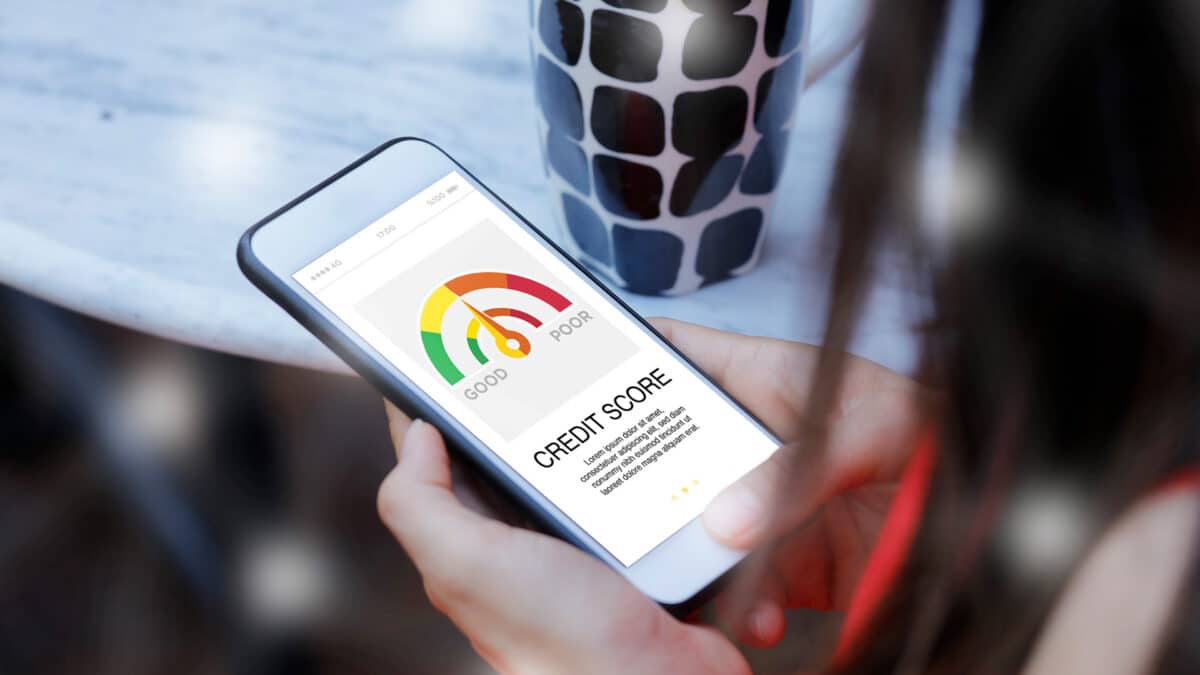Most products on this page are from partners who may compensate us. This may influence which products we write about and where and how they appear on the page. However, opinions expressed here are the author's alone, not those of any bank, credit card issuer, airline or hotel chain.
The typical repayment term on a personal loan can last many years. If you encounter a financial hardship during that repayment period, you may suddenly find it difficult to make the monthly payments on your personal loan as scheduled.
Rather than default on your debt, personal loan deferment may be an alternate option. With deferment, you may be able to take a break from your payments while also avoiding certain fees, penalties, and even impacts on your credit score. Here's how personal loan deferment works and what to expect once you've requested it.
What Is Personal Loan Deferment? How Does It Work?
Deferment is an agreed deviation from an established payment plan on certain loan types, allowing you to pause or push off your monthly payment requirement for a specific period of time.
Here is a general overview of how it works:
- A lender approves you to temporarily defer payments: Rather than skip payments, make late payments, or default on the loan altogether, certain lenders offer loan deferment instead. Once approved, you can stop making monthly payments for a predetermined time, usually three to six months.
- Your balance may continue to accrue interest: Depending on your lender, your loan may continue to accrue interest charges, so your loan balance may increase overall.
- Your loan term is extended: Your loan term will generally be extended by the same number of months as your deferment period.
- Deferring loan payments do not impact your credit: The deferred payments won't be reported to the credit bureaus as late, and you won't default on the debt as long as you resume payments as planned once the deferment period ends.
It's important that you contact your lender as soon as possible about deferment if you think you are likely to miss a payment. That way, they can work with you to avoid any late payment fees and prevent harm to your credit. Loan deferment may be offered by certain lenders by request. It can be available on personal loans, federal and private student loans, auto loans, mortgage loans, credit cards, and more.
 Related Article
Related Article
How I Used a Personal Loan for My Husband’s Career Change and Increased His Salary
Who Qualifies for a Loan Deferment?
Loan deferment is typically only available to borrowers who are experiencing some extenuating circumstance. This could include a financial hardship due to job loss, illness, injury, or even a death in the family. If you're finding it hard to make your monthly payments on time due to one of these reasons (or similar), you may qualify for loan deferment.
Personal loan lenders who allow for loan deferment often have qualification criteria. For example, you might only be approved if you:
- Have made a certain number of on-time payments already
- Have had your account open for a minimum period of time
- Haven't requested a deferment period recently
- Are in good standing with your account
If you're interested in loan deferment, read your loan agreement. You can also contact your lender to see what options might be available to you and whether you will qualify.
How to Request a Personal Loan Deferment
The process for requesting a deferment may vary by lender and even the type of loan you have. Federal loan servicers may have a different process from private lenders, for example, and credit card companies might have unique forbearance options compared to personal lenders.
With that said, the process and eligibility requirements are often similar for each of these lenders and financial products. Requesting loan deferment usually involves some combination of:
- Reaching out to the lender to notify them of your hardship
- Explaining your hardship and why it affects your ability to make regular payments on time
- Filling out a request for payment deferment
- Providing the lender or loan servicer with any necessary documentation to support your request
- Resuming payments as scheduled once the deferment period ends
In some cases, the lender may offer you an alternate repayment plan (such as reduced monthly payments) or initiate a deferment or forbearance period depending on your situation.
Does Interest Accrue During Personal Loan Deferment?
Depending on the lender, interest may still accrue during your loan deferment period. This means that your loan balance may grow during deferment, which can add to your debt burden. You'll get a temporary break from making your regular payments, though.
Some lenders may be less strict and allow interest-free deferment in some scenarios, such as a natural disaster or global pandemic.
Despite the interest accrual, the loan deferment may be worth it to avoid taking a hit on your credit and if you need a little more time to bounce back financially.
Will Personal Loan Deferment Affect My Credit Score?
Failing to make your personal loan payments as promised can negatively affect your credit score. Late payments on private loans and other products are typically reported to the credit reporting agencies, where they are added to your credit history and follow you for about seven years. The result? A serious hit to your credit score for the next almost-decade.
On the other hand, loan deferment can help you avoid damage to your credit score by offering you a loan extension of sorts. A loan deferment pauses your payment obligation for a set number of months and tacks those extra months onto the end of your loan term. The deferral period will usually be noted on your credit report, but it won't necessarily hurt (or help) your credit score.
When given a choice between deferment and default (or even just late payments), the former is almost always the better option.
Pros and Cons of Personal Loan Deferment
There are a few advantages and disadvantages to consider regarding personal loan deferment.
Pros
- Pauses payments while you recover financially
- Avoid damage to credit score
Cons
- Lengthens your debt burden
- Only available to those who meet lender's hardship criteria
- Interest may continue to accrue
Pros:
- Pauses payments while you recover financially: It allows you to pause monthly payments while you recover from financial or economic hardship.
- Avoid damage to credit score: Rather than have late debt payments reported to the credit bureaus and impact your score, deferment gives you an allowed payment-skipping option that won't destroy your credit report.
Cons:
- Lengthens your debt burden: Those deferred months are tacked onto the end of your loan term, so you'll be in debt longer than before.
- Only available to those who meet lender's hardship criteria: Deferment is generally only available to those who meet the lender's eligibility criteria. If you aren't experiencing a job loss, illness, injury, or other extenuating circumstance, you might not qualify.
- Interest may continue to accrue: Interest may continue accruing and your loan balance will grow depending on how the lender handles your deferment.
Is a Personal Loan Deferment a Good Idea?
Putting off debt payments is never recommended. However, since the deferment option is typically only available to borrowers experiencing a qualifying hardship, it may be a matter of choosing the lesser evil.
Personal loan deferment is a good idea when you meet the lender's requirements, are struggling to make monthly payments, and would otherwise make late payments or default altogether. It is worth considering if you need a little more time to get back on your feet financially and want to avoid having missed payments damage your credit score.
Frequently Asked Questions
-
Loan forgiveness is usually reserved for federal student loans, and only for eligible borrowers. Under the CARES Act, qualifying federal borrowers are still being credited for monthly payments toward their loan forgiveness programs, even if monthly payments aren't actually being made.
Private student loans, personal loans, and other consumer debt balances usually aren't eligible for loan forgiveness, regardless of deferment status.
-
Most lenders only allow you to defer personal loan payments for three to six months. Some lenders will allow for more than one deferment period, so be sure to check with your lender to see how long you can defer payments and whether you can apply for deferment again.
-
When it comes to personal loans, interest may continue to accrue during the deferral period, which is added to your loan balance and repaid once the payments resume. Some lenders may offer interest-free deferment for qualifying borrowers who are facing hardship due to a natural disaster or global pandemic.
-
Some lenders only allow one deferment period per loan term, while others may limit you to one or two deferments per year. Check with your private loan lender to see which deferment options are available to you and how many times you can defer your loan payments.



















